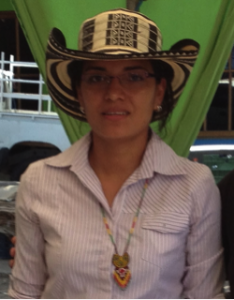AYNI- the Indigenous Women’s Fund, based in Peru, is the very first Fund for and by indigenous women. Indigenous women face significant challenges to the full enjoyment of their human rights. They experience multiple forms of discrimination, often lack access to education, health care and ancestral lands, face disproportionately high rates of poverty and are subjected to violence, such as domestic violence and sexual abuse, including in the contexts of trafficking and armed conflict.
We strongly believe that indigenous women are vital actors in the fight against poverty, racism and social exclusion. When empowered, indigenous women produce a ripple effect that reaches the lives of other women and children. One of the defining characteristics of AYNI is that we embrace a holistic approach to philanthropy in which the knowledge, experience and efforts of indigenous women are fundamental.
Our grantmaking programme relies on the human rights framework and focuses on the funded organization and/or community: it is based on indigenous women’s valuessuch as traditional knowledge, reciprocity, complementarity, respect for diversity and participation, among others. For example, FIMI endorses the concept of Free, Prior, and Informed Consent (FPIC). All of FIMI’s work is based on building networks through informed consent. The principle of FPIC is central to Indigenous women’s exercise of self-determination and the right to participate in decision-making in matters that would affect their lives, including their lands, territories, and natural resources. The substantive and procedural norms that underlie FPIC empower Indigenous Peoples to meaningfully exercise their choices, particularly in relation to developing proposals.
For example, AYNI requests a letter establishing Free, Prior and Informed Consent (FPIC) for the implementation of every project and initiative at the local level. Each letter expresses how the community is involved in the design of the project. In that way, AYNI intends to assure the full participation of the actors affected by the project. For example, in the case of an organization from Peru, various members of the community signed a letter informing their consent for this organization to implement their planned project.
Promoting ownership and sustainability
One of AYNI’s most innovative and positive approaches is the strong conviction that contributions made by indigenous women in their own communities are essential for the development of their projects. This is why the fund takes into account not only ‘quantifiable contributions’ made by the candidates, but also ‘non-quantifiable contributions’, such as traditional knowledge, practices, and spiritual resources, among others. In our last call, organizations included non-quantifiable contributions such as social networks, indigenous language translations and spiritual support. Moreover, we have learned that including applicants’ own contributions promotes ownership and sustainability.
By funding small projects, with a maximum grant size of 5000 USD, AYNI aims to strengthen indigenous women and their organizations, to encourage self-development and to learn lessons that they can replicate on a larger scale. In this regard, one key aspect to achieve the goal of empoweringindigenous women is the fact that priority is given to projects submitted by organizations and communities that have not received prior funding.
Our flexibility regarding applicants’ proposals promotes indigenous women’s autonomy. We set four project areas (Educational Empowerment, Economic Empowerment, Political Participation and Institutional Strengthening) but we not decide the topics or issues that each project will address: it is indigenous women and their organizations that decide, according to the needs they identify at the local level.
Learning together
When it comes to the evaluation process, AYNI’s methodology has helped to strengthen local expertise and network building. Instead of centralizing the process, FIMI encourages local organizations to take the lead and conduct the monitoring and evaluation process of the granted projects. This has helped create bonds between smaller and larger organizations and networks at the local/national level, leaving behind a paternalistic and centralized approach to the evaluation process. As an added value, such monitoring methodology includes specific instruments based on indigenous peoples’ needs and realities, which enables a more in depth learning process in the field than traditional bureaucratic methodologies.
These strategies are part of AYNI’s holistic approach when it comes to empowering small indigenous women’s organizations. Indigenous Women’s priorities and proposals have gained visibility at international, regional, national level and have shown very positive results. Indigenous women’s organizations at local level are able to articulate their demands with regional networks, participate in capacity building sessions, present their project to larger donors and advocate for the inclusion of their priorities at national and international processes.
For more information please write to us: ayni@iiwf.org
Yohanis Amador, indigenous woman from Colombia and AYNI Fund Coordinator
The mission of the Indigenous Women’s Fund is to mobilize resources (material, financial and human) to support capacity building of the indigenous women’s movement, develop leadership and strengthen the organizations that defend and promote the rights of indigenous women. The AYNI fund was launched in 2008 and works globally; it has an administrative office in Lima, Perú. This article is part of a series posted by Mama Cash sharing the perspectives of the local and regional funds that are its grantee-partners.






Comments (6)
Bonjour, Nous sommes heureuses de de vous contacter, demander l'information sur la coopération entre notre réseau UMOJA, et les fonds pour les femmes autochtones , prière nous informer sur la façon dont nous pouvons collaborer avec vous pour améliorer les conditions de vie des femmes et filles autochtones en province du Sud Kivu dans les territoires de Fizi et Uvira. UMOJA est un réseau des organisations féminines qui travaillent pour: - lutter contre la discrimination des femmes autochtones, - la promotion et la protection de droits socio-économiques des femmes autochtones à l'Est de la République démocratique du Congo . Les détails sur notre réseau vous parviendront après avoir reçu votre réponse. Nous serons tres heureuses de vous lire Cordialement Mme Fifi Angele
Greetings to you from India. SPREAD is a registered NGO working in rural/urban areas among the women and children since so many years.We need your support and cooperation on Covid-19. Kurnool district is one of the most corona virus cases registered in the Andhrapradsh state and cases were spurting day by day. The corona virus out break is affecting all of us.since so many days and 0.5 lock-down still continuing .So we are planning to submit a project proposal in the very shortly for the front line workers working in Kurnool Municipal corporation(Red Zone/Cantonment areas ) and all the information to be provided in detailed proposal . We humbly request you please consider our request and send the guidelines and application for further information. and protect the scavengers families. Thanking you,Yours, Society for Peace Rural Education And Awareness Development(SPREAD)87-1317,Revenue Colony,B.Camp,Kurnool, AndhraPradesh,India-518002
Dear Madam Kindly may you advise us on how we can partner with you to improve the conditions of living for the women farmers in our communities. Anasi farmers is a community based women group working hard to fight Hunger and poverty in our rural communities. Details about us shall be send to you after hearing from you. And your advice is vital for the development of our women and community at large. We shall be happy to hear from you
is the project propoal has been selected
Thanks Chris for your message and interest. We will write you an email to follow up on your message. You can also contact at info@iiwf.org
Dear AYNI Fund Team I am a humanitarian journalist and editor working in the Zimbabwean capital, Harare, and I have been helping women in poor communities desist from harmful ways of life through coverage of their stories and linking them up with possible avenues of help. I received the communication in which the Fundsforngos carried your call for applications from disadvantaged women and engaged some of the said women in the Epworth high-density township on the outskirts of Harare. They took my advice and revived a women's club to start a poultry project for self help, but it took them a long time to register as a cooperative as required by the law. Thus completing their application form for this particular program you have for 2015 also took longer than anticipated, until the yesterday (9 September) deadline elapsed. I was wondering if you could be lenient a bit and allow submission of the application, since the application reply link/window has been disconnected? Your kind help with be mostly appreciated; at least to ease the minds of the now-excited poor women. (Note: They have been made aware their application may not qualified, even received, depending on its competence among others.) Best regards, Chris Anold Msipa